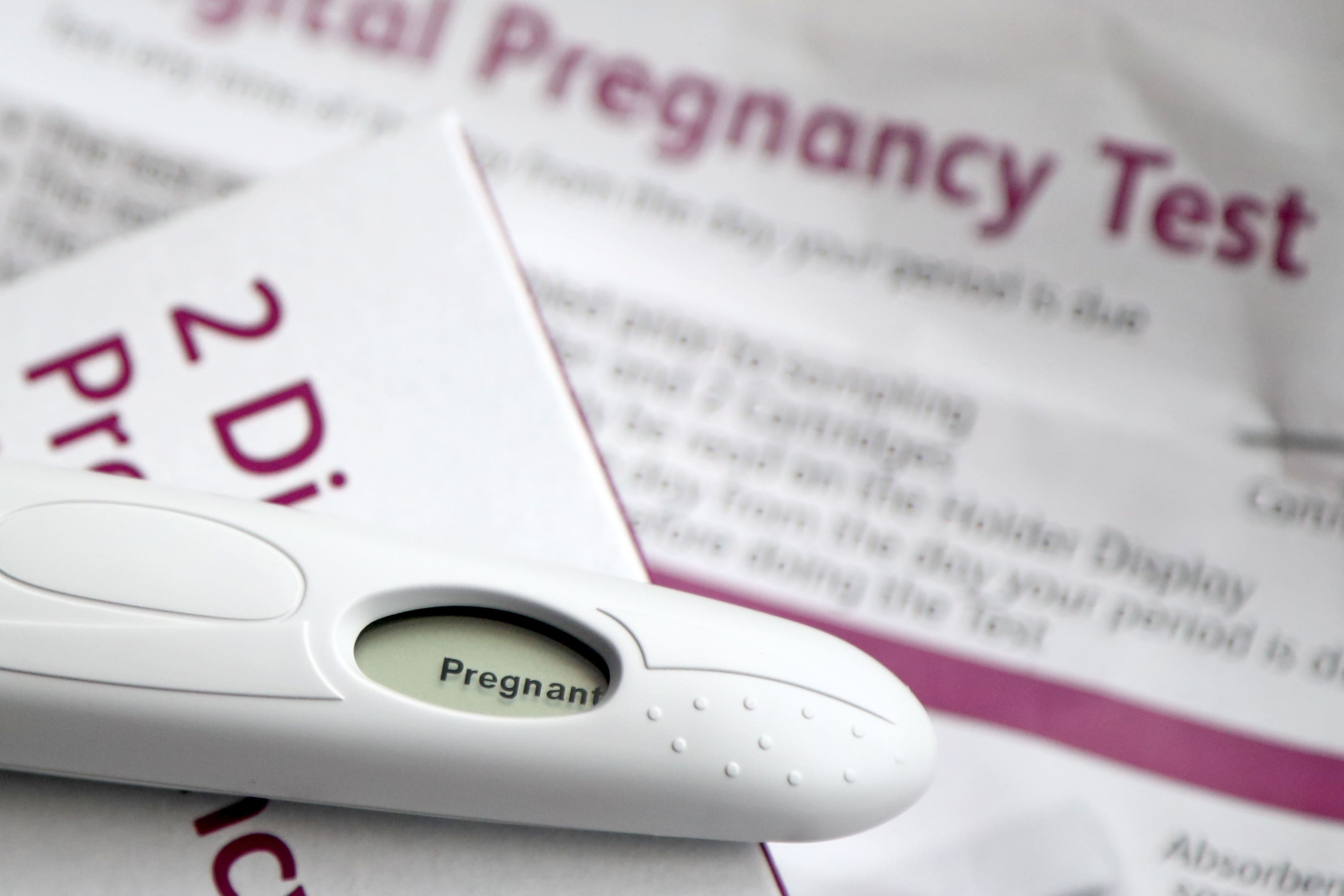Medics should not report suspected illegal abortions to police – leading doctors
Doctors are to be reminded about patient confidentiality in new guidance.

Your support helps us to tell the story
From reproductive rights to climate change to Big Tech, The Independent is on the ground when the story is developing. Whether it's investigating the financials of Elon Musk's pro-Trump PAC or producing our latest documentary, 'The A Word', which shines a light on the American women fighting for reproductive rights, we know how important it is to parse out the facts from the messaging.
At such a critical moment in US history, we need reporters on the ground. Your donation allows us to keep sending journalists to speak to both sides of the story.
The Independent is trusted by Americans across the entire political spectrum. And unlike many other quality news outlets, we choose not to lock Americans out of our reporting and analysis with paywalls. We believe quality journalism should be available to everyone, paid for by those who can afford it.
Your support makes all the difference.Medics should not report suspected illegal abortions to the police, leading women’s doctors are expected to say.
The Royal College of Obstetricians and Gynaecologists (RCOG) will remind healthcare workers of their duty to maintain patient confidentiality in new guidance, which is yet to be published.
Doctors are required to ask for consent before sharing any confidential medical information.
But medics can share information if it is in the public interest and “if failure to do so may expose others to a risk of death or serious harm”, according to the medical regulator, the General Medical Council.
There are devastating consequences that come from a culture of increased reporting, police investigations and prosecutions that simply would not happen with any other medical procedure
In new guidance, RCOG will reportedly tell medics it is “never” in the public interest to share information about suspected illegal abortions.
RCOG said the guidance, which was written alongside the Faculty of Sexual and Reproductive Healthcare (FSRH), British Society of Abortion Care Providers and the Faculty of Public Health, will be published later in the week.
The College said that it is concerned at the “increasing number of police investigations following later gestation abortion and pregnancy loss and the impact this can have on women, who may be especially vulnerable and have suffered the distress of a later stage loss”.
It said that healthcare workers working with women “rarely” need to be in contact with police, and that healthcare workers must abide by their “professional responsibility to justify any disclosure of confidential patient information or face potential fitness to practise proceedings”.
RCOG president Dr Ranee Thakar said: “We firmly believe it is never in the public interest to investigate and prosecute women who have sought to end their own pregnancy.
“These women should be treated with care and compassion, without judgment or fear of imprisonment.
“Outdated, antiquated abortion laws mean women who have experienced unexplained pregnancy loss are also vulnerable to criminal investigation, and health professionals are placed under unacceptable and unwarranted scrutiny.
“We hope this new best practice guidance gives healthcare professionals clarity around their legal and professional obligations. It is vital that they understand what is expected of them and the potential consequences of breaching patient confidentiality.
We firmly believe it is never in the public interest to investigate and prosecute women who have sought to end their own pregnancy
“It is just one of the ways we are working towards removing abortion care from criminal law and placing it instead under medical regulation.”
It comes after high-profile prosecutions, including that of Bethany Cox who was accused of using poison for an at-home abortion in 2020.
Ms Cox, from Eaglescliffe, Stockton-on-Tees, was brought before the courts, only for prosecutors to drop the charges against her earlier this year.
Meanwhile, Carla Foster was jailed last year for illegally obtaining abortion tablets to end her pregnancy, but her sentence was reduced on appeal.
BPAS (the British Pregnancy Advisory Service) said a “culture of increased reporting” can have “devastating consequences”.
A spokesman said: “It is too often the case that women who are ending up before the courts are ones who have had the police called on them by medical professionals they trusted.
“There are devastating consequences that come from a culture of increased reporting, police investigations and prosecutions that simply would not happen with any other medical procedure.
“The question must be asked – who benefits from subjecting women to lengthy and traumatic police investigations and threat of prosecution and prison time? Not police, not taxpayers, not politicians, and certainly not our women.”
We carefully consider the personal circumstances of those who end their pregnancy outside the legal parameters and address these as sensitively as possible
A Crown Prosecution Service spokesman said: “These exceptionally rare cases are complex and traumatic.
“We carefully consider the personal circumstances of those who end their pregnancy outside the legal parameters and address these as sensitively as possible.
“Our prosecutors have a duty to ensure that laws set by Parliament are properly considered and applied when making difficult charging decisions.”
A Government spokesman said: “It is important that all women have access to safe and legal abortions on the NHS, which now includes taking abortion pills at home.
“We understand this is an extremely sensitive issue and we recognise the strongly held views on all sides of the discussion.
“That is why, by longstanding convention, any change to the law in this area would be a matter of conscience for individual MPs rather than the Government.”